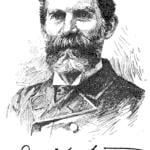Last updated on: October 2, 2010 at 6:14 am
By
Scot McKnight
I don't know Chuck DeGroat, but I think I like him. Here's what he calls his "rant against change." Call me a hypocrite. I’m about to rant against the new. People who know me and have read what I’ve written, even recently, will laugh at my hypocrisy. They know my adoration for the iPad and the iPhone 4, and my belief that technology (from the Roman roads, to the printing press, to Twitter) is the way God gets his message out. I’m also convinced that God was so excited about the newness of the world he created that he had to sit down for a day and take it all in. And God clearly doesn’t have a problem (re)newing all sorts of things, because the “New” Testament is chock-full of new things – new creation, new law, a new ‘Moses’, a new song, a new heart, and…not least…a New Exodus. That said, I’ve got to rant against the tragic American penchant for the new, particularly is it relates tocommitments. Let me give you an example. When a child is baptized, the people stand to recite a portion of the liturgy expressing something sacred and deeply meaningful: Read more















